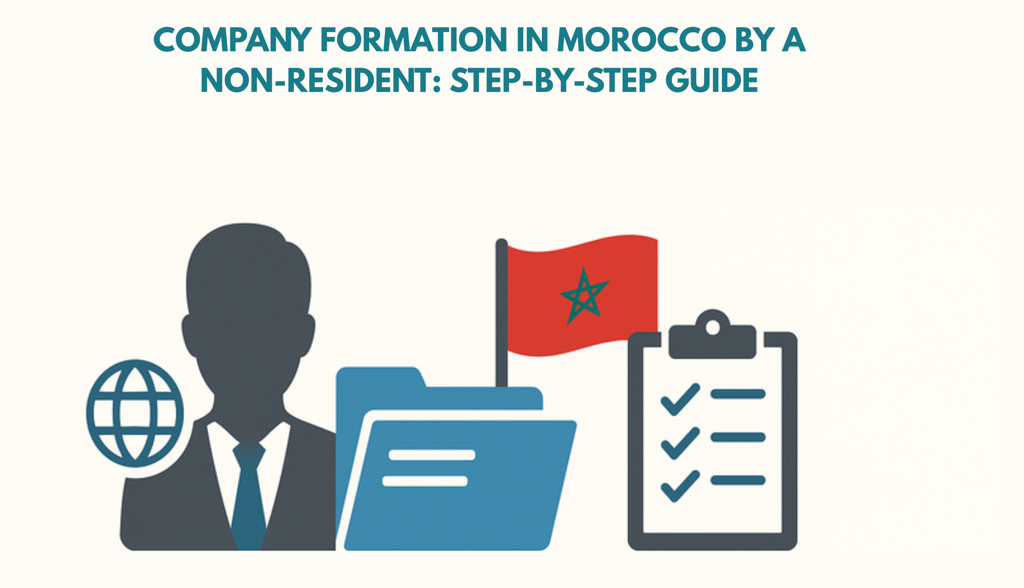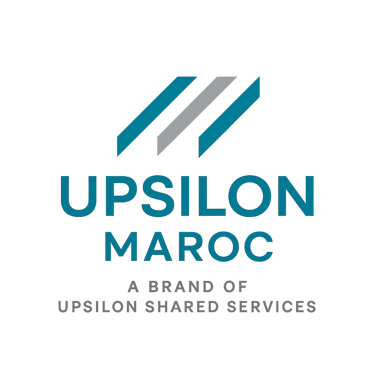Company Formation in Morocco by a Non-Resident: Step-by-Step Guide
Are you a non-resident looking to set up a company in Morocco? Discover the rules, obligations, and tips to establish your business smoothly.
5/31/20253 min read


Is It Possible to Create a Company in Morocco Without Being a Resident?
Yes, a non-resident can absolutely create a company in Morocco. Moroccan law is highly welcoming to foreign investment, allowing foreigners to hold 100% of the capital of a local company without needing a Moroccan partner. This legal framework is a significant advantage, but it does require navigating specific administrative procedures.
Choosing the Right Legal Structure
The choice of legal structure is a critical first step that will determine your company's tax, social, and operational framework. While non-residents can choose from several types, the most common are:
The SARL (Limited Liability Company): This is the most popular choice for small to medium-sized businesses. It is appreciated for its simplicity, limited liability (the owners are only responsible for the amount of capital they invested), and flexible management. It's an excellent option for a wide range of business activities.
The SA (Société Anonyme): This structure is more suitable for large-scale projects, especially those aiming for significant fundraising or a future public listing. It requires a higher minimum capital (300,000 MAD) and a minimum of five shareholders, along with a more complex governance system.
The SAS (Simplified Joint Stock Company): The SAS is a modern and highly flexible option favored by startups and innovative companies. It offers significant freedom in drafting the articles of association, allowing for tailor-made governance and making it easier to attract investors. It's a great choice for those who want to anticipate rapid growth.
The Specific Formalities for Non-Residents
While the general company creation process in Morocco has been streamlined, non-residents have additional requirements to consider:
Identity and Residence Documents: You will need a legalized copy of your passport. In some cases, this document may need to be apostilled to be recognized by Moroccan authorities. Proof of your address in your country of residence is also required.
Criminal Record: A criminal record from your country of origin may be requested as part of the application.
Fund Transfer Declaration: For any funds transferred from abroad to cover the company's capital, a declaration to the Office des Changes (Exchange Office) is mandatory.
Legalized Signature and Power of Attorney: If you cannot be physically present in Morocco to sign documents, a notarized power of attorney must be granted to a representative (such as a legal professional) to act on your behalf. This is a crucial step to avoid multiple trips.
A Step-by-Step Guide for Non-Residents
The entire process is coordinated through the Regional Investment Center (CRI), a one-stop-shop that simplifies administrative procedures. Here’s a general overview of the steps:
Obtain a Negative Certificate: This is a crucial first step to reserve your company's name and ensure it is not already in use. It is obtained from the Moroccan Office for the Protection of Industrial and Commercial Property (OMPIC).
Draft the Articles of Association: This foundational document must be drafted with precision, outlining the company's purpose, structure, share capital, and governance rules.
Deposit the Capital: The required share capital must be deposited into a Moroccan bank account, which will issue a certificate of capital deposit needed for registration.
File at the CRI: All documents (articles of association, negative certificate, passport copies, etc.) are submitted to the CRI, which handles the registration with various administrations.
Obtain Official Identifiers: The CRI will provide you with the essential business identifiers, including the Commercial Register (RC) number, the Tax Identification Number (IF), and the Common Enterprise Identifier (ICE).
Social Security Affiliation: If you plan to hire employees, the company must be registered with the National Social Security Fund (CNSS).
Navigating Taxation and Administrative Obligations
Once your company is established, it will be subject to the same tax regime as companies created by residents, primarily the Corporate Tax (IS). However, specific rules apply to dividend repatriation, which may be subject to a withholding tax.
It is highly recommended to engage a local accountant to ensure compliance with Moroccan tax laws and regulations. They can assist with financial reporting, tax filings, and other obligations.
Why Professional Guidance is Key for Non-Residents
Creating a company from abroad can present unique challenges, including language barriers, unfamiliar bureaucracy, and a different legal environment. Working with a professional firm like Upsilon Maroc offers a significant advantage. They provide end-to-end support, from choosing the right legal form to handling all the administrative paperwork and ensuring a smooth, compliant process. This allows you to focus on your business project, confident that the legal and administrative foundations are solid.
Accounting expertise and legal assistance in Morocco.
Contact
Yatim@Upsilon-Consulting.com
+ 212 522 202 568
© 2025. All rights reserved.


